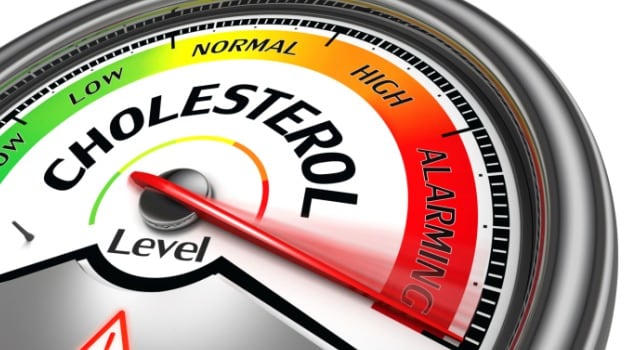High cholesterol levels have become a common lifestyle problem. In simple terms, cholesterol is found in the fat (lipids) in blood. Increased levels of cholesterol in blood lipid may lead to its accumulation in blood vessels, as a result of which, the blood flow in the body gets sluggish.
High cholesterol levels may lead to an obstruction of proper blood flow to the heart as well as other organs. It may lead to stroke, other cardiovascular diseases, high blood pressure and so on. Though it can run in genes, lifestyle factors and one's diet have much to contribute in triggering the condition. Some of the recent medical studies indicate that high cholesterol may risk of breast cancer in women.
High Cholesterol Levels May Make it Harder to Get Pregnant
According a recent research published in the American Journal of Clinical Nutrition, high cholesterol and triglycerides levels can prevent the essential vitamin E from reaching the tissues that need it. People with elevated lipids (cholesterol and triglycerides) in their blood plasma are facing increased inflammation on tissues. Vitamin E is known to have anti-inflammatory properties. However, due to high cholesterol, the Vitamin finds it difficult to make its way to these inflamed tissues.
"Almost every tissue in their body is under oxidative attack, and needs more Vitamin E. But the vitamin E needed to protect these tissues is stuck on the freeway, in the circulatory system. It is going round and round instead of getting to the tissues where it is needed," said Maret Traber, lead study author from Oregon State University.
A team of experts at the Oregon State University carried out study on 41 men and women The participants were given vitamin E in form of deuterium-labeled collard greens which facilitated tracking of the nutrient through the body. As the team tacked the passage of the vitamin within the body of the participants, it was concluded that most of Vitamin E was not reaching the tissues.
"In simple terms, we believe that less than one third the amount of vitamin E is actually making it to the tissues where it's most needed," Traber said.
Vitamin E forms an extremely crucial component in our body. It plays an important role in some places such as artery walls, the brain, liver, eyes and skin. It also aids in scavenging free radicals and neurologic function. Vitamin E is a fat-soluble antioxidant which can assist in combating high cholesterol and can protect against the development of atherosclerosis. Apart from these, the Vitamin is also associated with maintaining good skin, skin, can strengthen immunity as well as may slow down the progression of Alzheimer's disease.
"Some experts have suggested that recommended levels of vitamin E should be lowered. But because of these absorption issues, the recommended level of 15 milligrams per day is about right," said Maret Traber, lead study author from Oregon State University.
Inputs from IANS








